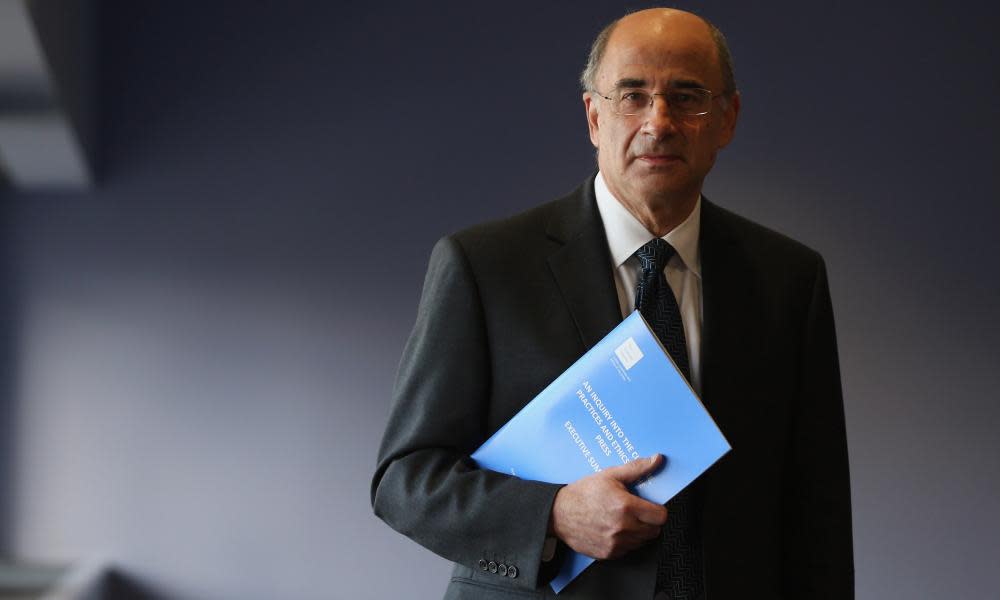New lord chief justice must be 65 or younger to navigate Brexit

The new lord chief justice will have to be 65 or younger in order to steer the judiciary through the uncertainties of Brexit, ruling out several leading candidates including Lord Leveson.
The decision, revealed in the launch of the appointment competition on Friday, astonished the legal world. As well as Leveson, who conducted the inquiry into media ethics, it rules out Lady Justice Hallett, who conducted the inquest into the 7/7 bombings. Both will be 68 later this year.
The criteria for becoming the most senior judge in England and Wales – salary £249,583 a year – specifies a lower age cap on the grounds that the successful candidate is expected to serve for at least four years through the period of the UK’s exit from the EU. The normal retirement age for judges is 70.
Surprised by the job description, Bob Neill MP, the Conservative chair of the commons justice select committee, tweeted:
I must say My initial reaction is that this is needlessly restrictive and rather arbitrary.... https://t.co/nj58UkyYVv
— Bob Neill (@neill_bob) February 24, 2017
Upper age limits for judges have been coming down – from 75 to 70 – while the age limits for jurors have, conversely, been rising. Last December, members of the public became liable for jury service up to their 75th birthday.
There has been speculation that ministers might be anxious about Leveson, with his experience of confronting the media, taking the top position – an outcome said to be likely to provoke tabloid animosity. Leveson is effectively the second most senior, and one of the most experienced, judges at the Royal Courts of Justice.
The current lord chief justice, Lord Thomas of Cwmgiedd, will be 70 in October. He will stand down at the start of the new judicial year after the summer.
Asked why the effective age limit had been imposed, the Judicial Appointments Commission (JAC) said there had been a requirement in previous competitions that the new lord chief justice should be able to serve in office for a significant period.
A spokeswoman added: “The decision was made in consultation between the selection panel and the lord chancellor [the justice secretary, Liz Truss] as is required under statute.”
The competition has been launched as the supreme court begins its competition to appoint a new president and recruit six new justices over the next two years.
It is not clear whether judges will damage their chances if they submit applications to both the JAC and the supreme court. The is hope both within the judiciary and Whitehall that the new appointments will result in fewer white males dominating the most senior judicial benches. But the JAC and ministers stress that merit remains the key criteria for selection.
Truss said: “The forthcoming appointment of the lord chief justice comes at a very important time for our country as we leave the European Union and undertake major reforms to our justice system and courts.
“Our independent, impartial and incorruptible judiciary is vital to our constitution and free society … The lord chief justice will need to lead the judiciary in reform to the justice system and drive the transformation of our court system. They will need to bring new talent into the judiciary as well as developing and supporting judges and magistrates across the country in their vital roles.
“The successful candidate must be an exceptional legal mind as well as a dynamic and visible leader. They will need to be a strong public advocate for the importance of the rule of law and communicate effectively with the public about the judiciary’s role … I can think of no higher calling and I encourage applications from talented individuals of all backgrounds.”

 Yahoo News
Yahoo News 
